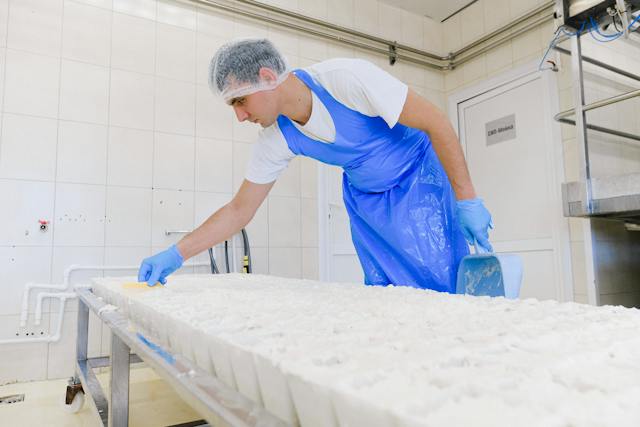Starting a food business in Holland is an exciting journey, yet it can feel overwhelming for new expats navigating life in a new country. However, the organized life in The Netherlands makes the process easy if approached with organization.

Key Steps for Launching Your Food Business in Holland
If you’re looking to launch a food business in Holland, there are several requirements you need to meet. Here are some of the key steps to set you up:
1. Create a Solid Business Plan for Your Food Business
Start by creating a well-thought-out business plan. Understand the Dutch market, define your niche, and consider factors like your target audience, competitors, and unique selling propositions. Let’s say, you’re planning to open a bakery. Analyze existing bakeries in your chosen location, understand their strengths and weaknesses, and identify what sets your bakery apart—whether it’s unique recipes, personalized service, or a distinct atmosphere. Having a solid plan is the groundwork for your successful food business in Holland.
2. Registering your food business in Holland at the "Kamer van Koophandel" - (KvK)
When you decide to start a food business in the Netherlands, one of the initial steps is to officially register your business with the Chamber of Commerce. During the registration process, you will need to provide information about your business, such as its name, address, and the type of activities it will be involved in. Importantly, you will also need to choose the right legal structure for your food business. Will you be operating as a sole proprietor (eenmanszaak) or establishing a legal entity with staff?
Securing Your VAT ID
After registering your business, you’ll be issued a registration number immediately. The KvK will then inform the Tax and Customs Administration, and they’ll provide you with a VAT ID and VAT number. This is important for transactions and complying with Dutch tax regulations.
Registration with the NVWA
If you’re in food production, processing, or sales, registering with the Netherlands Food and Consumer Product Safety Authority (NVWA) is mandatory. The NVWA oversees and ensures both food safety and consumer protection in the food industry.

Complying with HACCP Guidelines for Food Safety
If you prepare or sell food in places like restaurants, cafes, or hotels, having a HACCP plan is required. It reduces risks while maintaining food safety standards. You can comply with HACCP rules by creating your own food safety plan or using an approved hygiene code for your industry. These codes are endorsed by the Dutch Food and Consumer Product Safety Authority (NVWA) and are listed for each sector.
Licensing and Permits
Before starting, make sure your business location has the required permits and licences. Consult with the local municipality for guidance to ensure compliance with regulations. For instance, if you plan to sell meals from home, you likely need to inform them.
Turning your food business dreams into reality in The Netherlands doesn’t have to be complicated. With a solid business plan and adherence to legal requirements, success is within reach.

